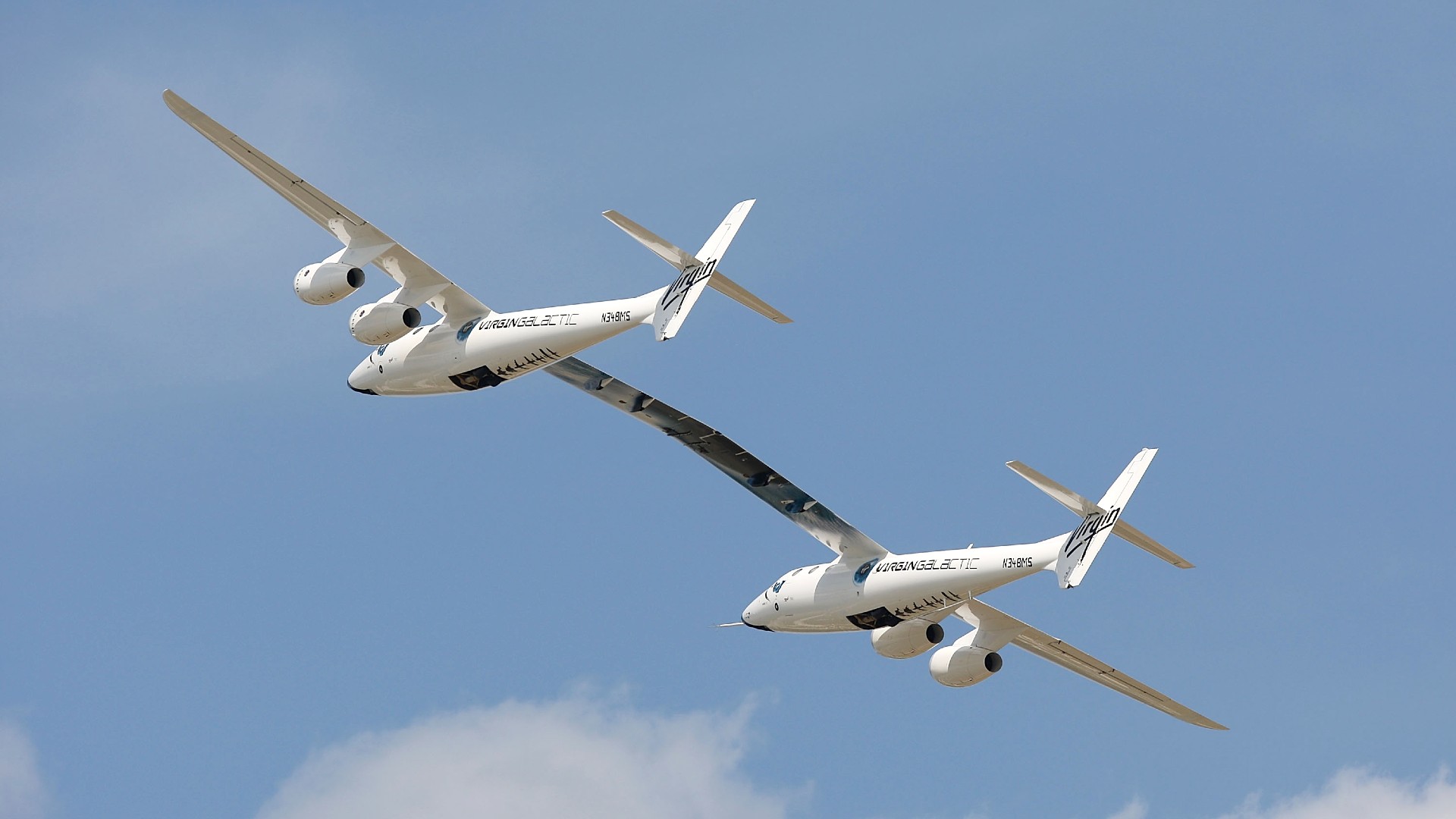Boeing files lawsuit against Virgin Galactic over development of new mothership aircraft
Boeing and its subsidiary Aurora Flight Sciences are chasing unpaid invoices and misappropriated trade secrets.

Boeing and its subsidiary Aurora Flight Sciences are suing Virgin Galactic over unpaid work and the misappropriation of trade secrets.
The suit alleges that Virgin Galactic has not paid $26.4 million in invoices for work related to the development of a new "mothership" aircraft intended to power Virgin's next-generation suborbital space planes. The suit was filed in the U.S. District Court for the Eastern District of Virginia on March 21, according to a SpaceNews report.
Virgin Galactic argues that the lawsuit is baseless in both facts and law and intends to defend itself vigorously, according to comments made to SpaceNews by a company spokesperson.
Related: Virgin Galactic picks Boeing subsidiary to build new carrier planes for space tourism flights
Suborbital space tourism provider Virgin Galactic uses a carrier aircraft mothership to haul a space plane to an altitude of about 50,000 feet (15,000 meters). Then the space plane falls free and begins its rocket-powered journey to suborbital space.
The company selected Aurora Flight Sciences in 2022 to build two new motherships. These would be delivered in 2025 and replace the current VMS Eve and be rated to fly as many as 200 times a year.
However, work halted after the completion of preliminary design work in May 2023. Boeing and Aurora claim that the project's budget and timeline constraints led to the conclusion that the new mothership could not be developed as Virgin Galactic envisioned.
Get the Space.com Newsletter
Breaking space news, the latest updates on rocket launches, skywatching events and more!
Additionally, Boeing and Aurora accuse Virgin Galactic of misappropriating trade secrets. These specifically concern technical specifications and modeling equations for aircraft performance, passed inadvertently to Virgin as part of the project. Boeing and Aurora have requested Virgin destroy this proprietary information.
Virgin declined to do so, claiming it had intellectual property rights to them as part of the agreement, according to the report.
The company has also shifted focus away from developing a new mothership, concentrating on producing its Delta-class space plane, with plans to continue using VMS Eve for upcoming test and commercial flights.
Join our Space Forums to keep talking space on the latest missions, night sky and more! And if you have a news tip, correction or comment, let us know at: community@space.com.

Andrew is a freelance space journalist with a focus on reporting on China's rapidly growing space sector. He began writing for Space.com in 2019 and writes for SpaceNews, IEEE Spectrum, National Geographic, Sky & Telescope, New Scientist and others. Andrew first caught the space bug when, as a youngster, he saw Voyager images of other worlds in our solar system for the first time. Away from space, Andrew enjoys trail running in the forests of Finland. You can follow him on Twitter @AJ_FI.
Aisha Bowe becomes 1st Bahamian woman to reach space, remembers Alan Shepard’s landmark flight: 'He landed in Grand Bahama' (video)
Katy Perry just became the 1st pop star to sing in space — but Lance Bass, Beyonce, Lady Gaga, Sarah Brightman and Justin Bieber had their chance









